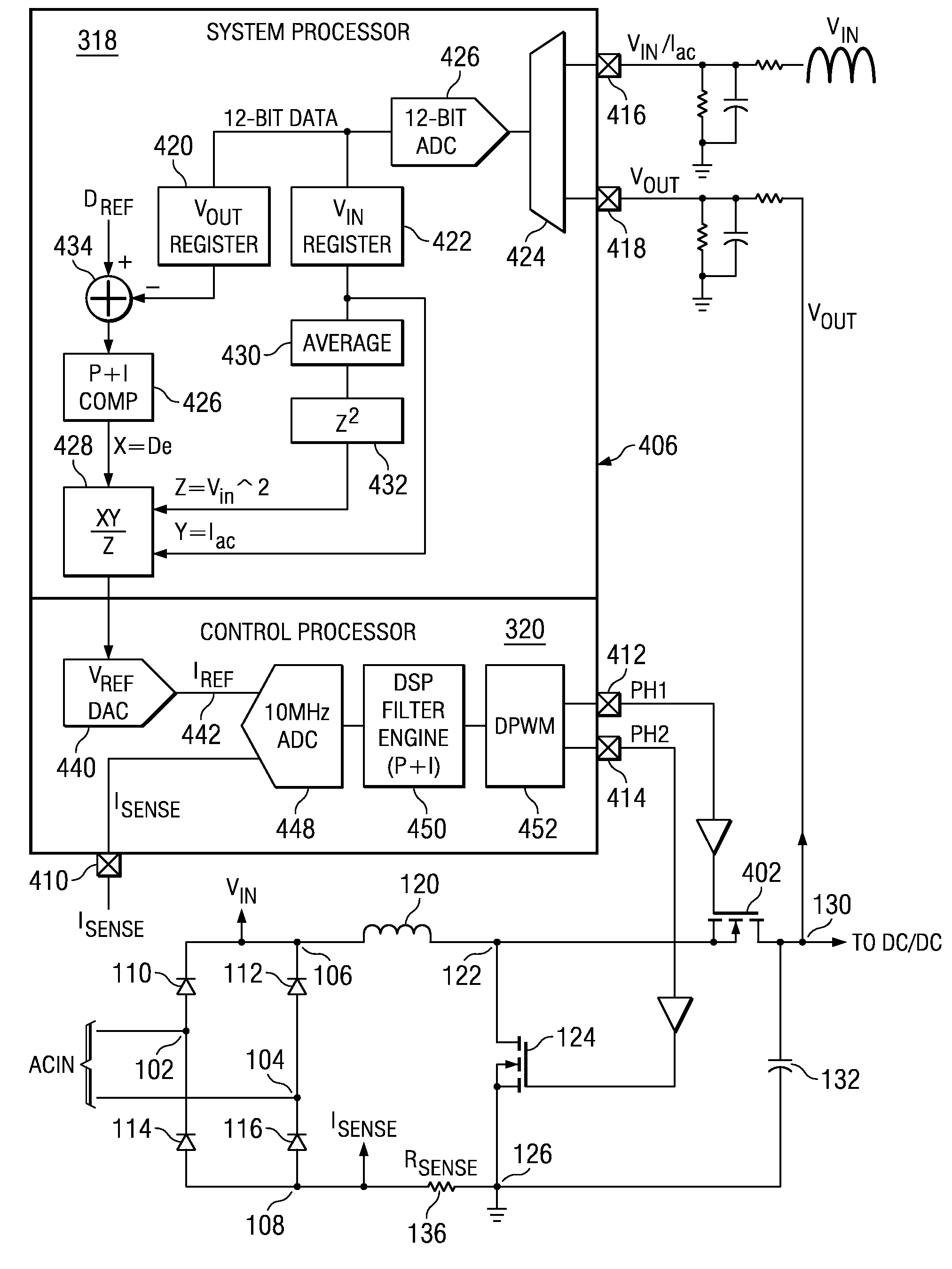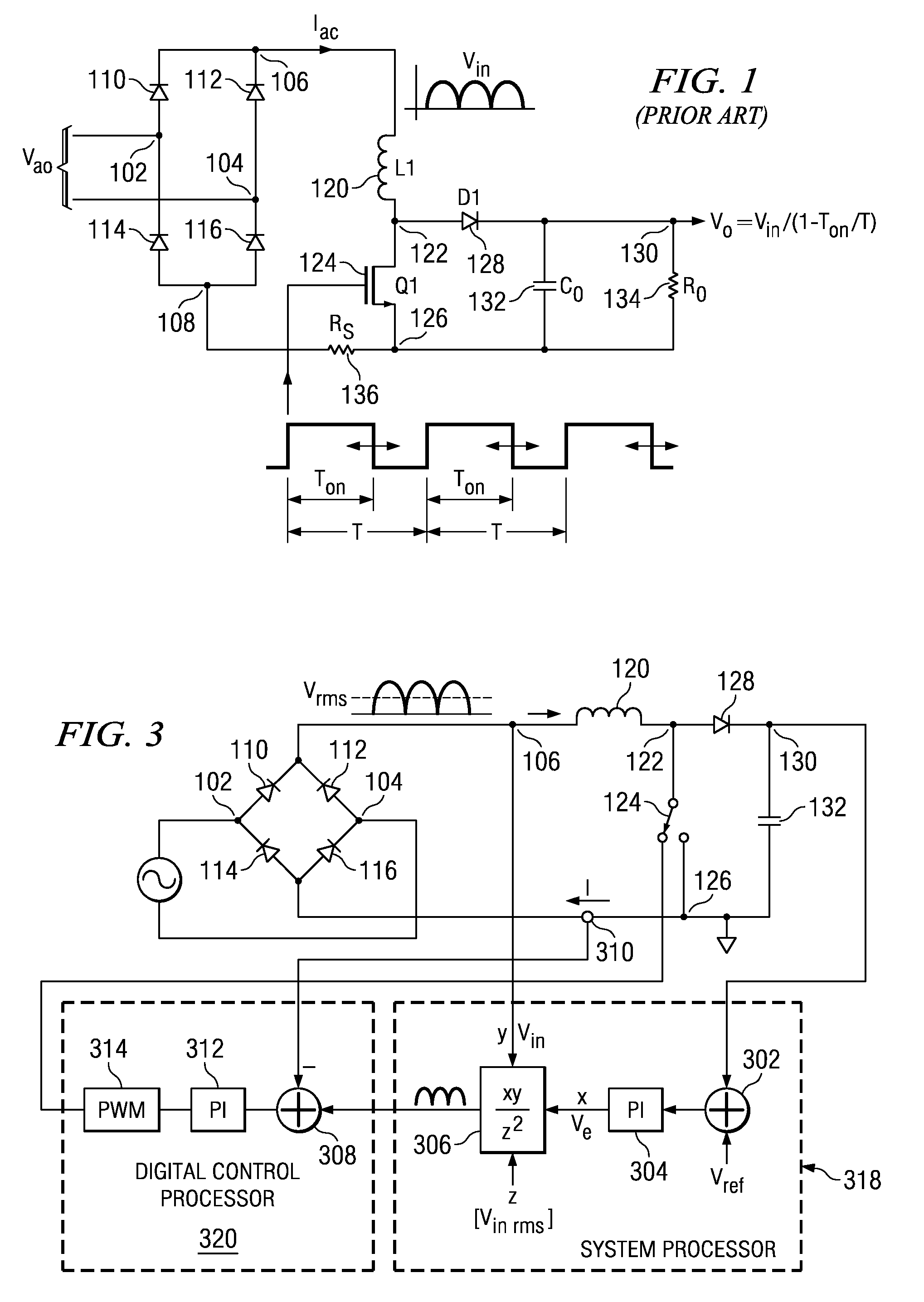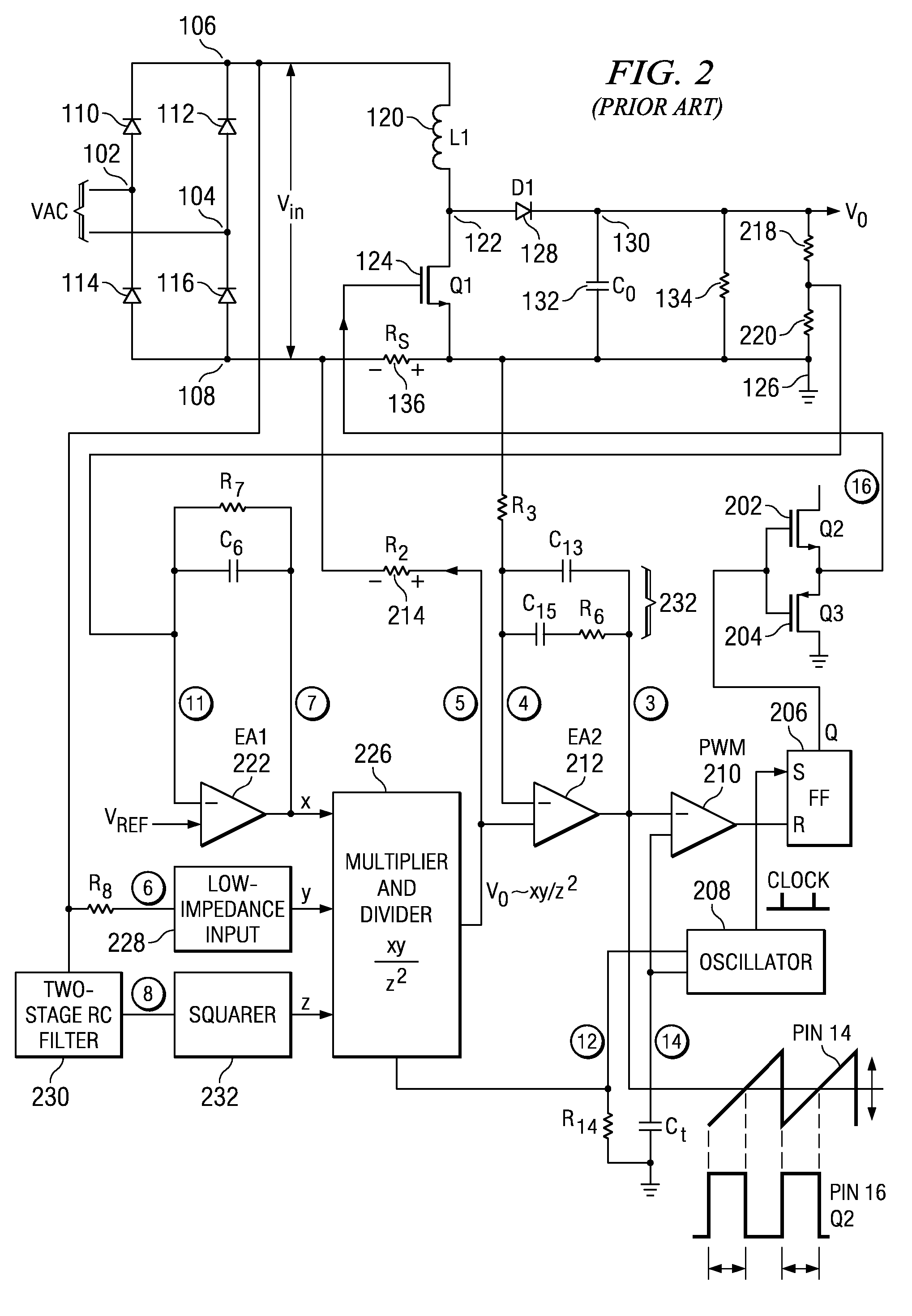Digital controller based power factor correction circuit
a technology of power factor and digital controller, applied in pulse generators, pulse techniques, instruments, etc., can solve the problems of power factor lowering, power waste, and power factor wasting
- Summary
- Abstract
- Description
- Claims
- Application Information
AI Technical Summary
Benefits of technology
Problems solved by technology
Method used
Image
Examples
Embodiment Construction
[0022]Referring now to FIG. 1, there is illustrated a prior art boost regulator with power factor correction (PFC). A full wave rectifier is provided between two input nodes 102 and 104 that receive an AC voltage and provide a rectified voltage between two nodes 106 and 108, node 106 being the VIN voltage which has a current Iac associated therewith. A first diode 110 is connected between node 102 to node 106 and a second diode 112 is connected between node 104 and 106, diodes 110 and 112 having the cathodes thereof connected to node 106. Similarly, a diode 114 is connected between node 102 and node 108 and a diode 116 is connected between node 104 and 108, the cathodes of diodes 114 and 116 connected to respective nodes 102 and 104. The voltage at node 106 is a rectified voltage that has an input zero crossing. These are half sinusoids that are then operable to drive a continuous-mode boost converter. This converter is comprised of an inductor 120 connected between node 106 and a n...
PUM
 Login to View More
Login to View More Abstract
Description
Claims
Application Information
 Login to View More
Login to View More - R&D
- Intellectual Property
- Life Sciences
- Materials
- Tech Scout
- Unparalleled Data Quality
- Higher Quality Content
- 60% Fewer Hallucinations
Browse by: Latest US Patents, China's latest patents, Technical Efficacy Thesaurus, Application Domain, Technology Topic, Popular Technical Reports.
© 2025 PatSnap. All rights reserved.Legal|Privacy policy|Modern Slavery Act Transparency Statement|Sitemap|About US| Contact US: help@patsnap.com



